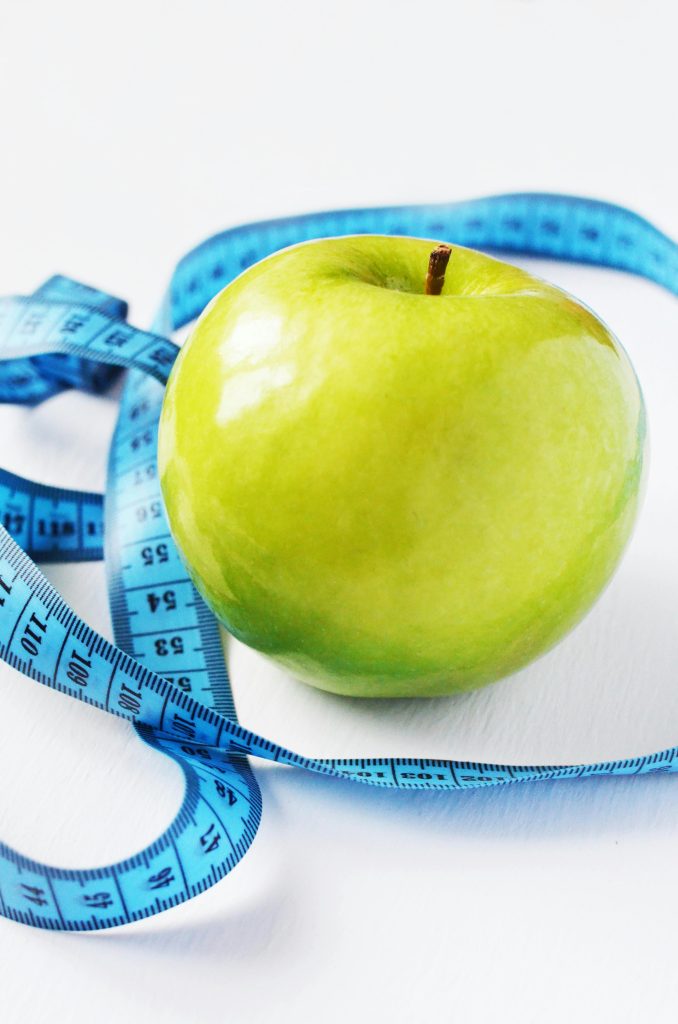Why Is My Weight Stuck Even With Diet and Exercise? (The Truth No One Tells You) & (And How to Fix It Fast!)
You’re eating clean. You’re working out. You’re doing everything “right.”
But the scale hasn’t moved in weeks—maybe even months.
Frustrating? Absolutely not.
Most people think weight loss is a straight line—eat less, move more, and the pounds will melt off. But here’s the hard truth: Your body hates losing fat. It fights back. And if you don’t know why your weight is stuck, you’ll keep spinning your wheels.
Let’s fix that.
Introduction: Why Is the Scale Not Budging?
You step on the scale for the 10th time this week. Same. Number.
You’ve cut calories. You’re hitting the gym. You’ve even given up your favorite snacks. So why is your weight stuck?
Here’s the deal: Weight loss plateaus happen to EVERYONE. Even fitness pros hit them. The good news? They’re fixable.
Before we dive into the real reasons your fat loss has stalled, let’s clear up a big myth:
“If you’re not losing weight, you’re just not trying hard enough.”
WRONG.
Your body isn’t a simple math equation. Hormones, metabolism, water retention, and even how you’re exercising can slam the brakes on fat loss.
The fix? Stop guessing. Let’s break down the top 7 reasons your weight won’t drop—and exactly what to do about it.

Reason #1: You’re in a Calorie Deficit… But Not Really
You think you’re eating less. But your body knows the truth.
Most people underestimate their calories by 20-30%.
That “healthy” salad? Loaded with ranch. That “small” handful of nuts? 200+ calories. That post-workout smoothie? Basically dessert.
Why This Happens:
- Hidden calories sneak in (oils, sauces, bites of your kid’s food).
- Portion creep—your “cup” of rice is actually two.
- Your metabolism adapts—what worked at first stops working.
How to Fix It:
Track everything for 3 days—yes, even that 5pm snack attack.
Use a food scale (eyeballing = disaster).
Re-calculate your calorie needs (your body changes!).
Pro Tip: If you’ve been dieting for months, your body needs a break. Try eating at maintenance for 1-2 weeks to reset.
Reason #2: Your Metabolism Has Slowed Down
Newsflash: The longer you diet, the slower your metabolism gets.
Your body isn’t stupid. It thinks you’re starving—so it burns fewer calories to survive.
Signs Your Metabolism Is Screaming for Help:
- You’re always cold (thanks, slowed thyroid).
- You feel sluggish (even with caffeine).
- You’re hungry all the time (your body wants energy).
How to Fix It:
Try a “diet break”—eat at maintenance for 1-2 weeks.
Lift weights (muscle burns more calories at rest).
Cycle calories—eat more on workout days, less on rest days.
Biggest Mistake? “I’ll just eat less!” Nope. That makes it worse.
Reason #3: You’re Gaining Muscle While Losing Fat (And Why That’s GOOD News)
“Muscle weighs more than fat” isn’t just some fitness bro myth—it’s science.
But here’s what most people get wrong: If the scale isn’t moving, it doesn’t mean you’re failing. In fact, you might be winning in ways the scale can’t measure.
Why This Happens:
- Muscle is denser than fat (1 lb of muscle = less space than 1 lb of fat).
- Newbie gains—if you just started lifting, your body is building muscle FAST.
- Body recomposition (losing fat + gaining muscle at the same time) is REAL.
Signs This Is You:
Your clothes fit looser, but the scale hasn’t budged.
You look leaner in the mirror (but the number’s the same).
Your workouts feel easier (strength is going up).
What to Do Instead of Panicking:
Ditch the scale for a week (seriously—hide it).
Take progress pics (the mirror doesn’t lie).
Measure your waist/hips (inches lost > pounds lost).
Track strength gains (more reps? Heavier lifts? That’s progress!).
Pro Tip: If you’ve ever Googled “scale not moving but clothes fit better”, this is why. Stop stressing—you’re doing better than you think.
Reason #4: Hormones Are Sabotaging Your Weight Loss (And How to Fix It)
“Just eat less and move more” is the worst advice for hormonal weight loss blocks.
If your thyroid, cortisol, or insulin are out of whack, no amount of willpower will fix it. Here’s what’s really going on:
Big Hormonal Culprits:
- Cortisol (The Stress Hormone)
- High stress = high cortisol = belly fat storage.
- “Why am I gaining weight when I’m stressed?” This is why.
- Thyroid Issues
- Slow thyroid = slow metabolism.
- Signs: Always cold, tired, dry skin.
- Insulin Resistance
- Your body stops processing carbs well = fat storage mode.
- Common in PCOS, prediabetes.
- Leptin Resistance
- Your “I’m full” hormone stops working = constant hunger.
How to Fix Hormonal Weight Loss Blocks:
Lower stress (walking, meditation, sleep).
Try anti-inflammatory foods (fatty fish, leafy greens).
Balance blood sugar (protein + fiber at every meal).
Get tested (thyroid, insulin, cortisol—don’t guess!).
Biggest Mistake? “I’ll just diet harder!” Nope. Hormones don’t care about willpower.
Reason #5: Water Retention Is Hiding Your Fat Loss (Here’s How to Fix It)
You stepped on the scale this morning and saw a number that made no sense. You’ve been perfect with your diet. You haven’t missed a workout. Yet somehow, you’re up 3 pounds overnight.
Before you panic and declare your diet “broken,” understand this: What you’re seeing isn’t fat gain – it’s water playing tricks on you.
Why Water Weight Tricks So Many People
- Sodium intake fluctuates daily (restaurant meals, processed foods)
- Carbohydrates cause water retention (3g water per 1g carb stored)
- Inflammation from workouts causes temporary swelling
- Hormonal cycles impact fluid balance significantly
Signs It’s Water, Not Fat
• Scale jumps up overnight (real fat gain doesn’t happen that fast)
• Rings or shoes feel tighter but loosen later
• Visible “puffiness” in face/hands
• Weight drops suddenly after a few days
How to Fix Water Retention
- Don’t overreact to daily weigh-ins – track weekly averages instead
- Reduce processed foods – especially high-sodium restaurant meals
- Stay hydrated – paradoxically, drinking more water reduces retention
- Include potassium-rich foods – bananas, spinach, avocados help balance sodium
- Be patient with post-workout swelling – muscles hold water when repairing
The Big Mistake: Seeing a spike and immediately slashing calories further. This often makes water retention worse by increasing cortisol.
Reason #6: You’re Overdoing Cardio and Undereating (The Vicious Cycle)
There’s a dangerous belief in weight loss circles: “If some cardio is good, more must be better.” This approach often backfires spectacularly.
When you combine excessive cardio with severe calorie restriction, your body activates survival mechanisms that actually prevent fat loss.
Why This go wrong
- Chronic cardio raises cortisol (stress hormone that promotes fat storage)
- Muscle loss increases when calories are too low
- Metabolic rate slows to compensate for energy deficit
- Hunger hormones skyrocket, making adherence impossible
Signs You’re in This Trap
• Feeling exhausted but forcing workouts anyway
• Constant hunger even after eating
• Workout performance declining
• Losing strength in the gym
• Feeling cold all the time
How to Fix It
- Cut cardio volume in half – focus on weight training instead
- Increase calorie intake to reasonable levels – at least match your BMR
- Prioritize protein – 1g per pound of body weight to preserve muscle
- Incorporate rest days – 2-3 full recovery days per week
- Try walking instead – low-intensity movement doesn’t trigger stress responses
The Reality Check: More exercise isn’t always better. Strategic recovery is just as important as the workouts themselves for sustainable fat loss.
Reason #7: Your Gut Health Is Blocking Weight Loss (The Hidden Factor)
You’ve counted every calorie. You exercise religiously. You drink enough water. Yet the scale won’t budge. What if I told you the problem might be in your gut?
Most people overlook this critical factor, but emerging research shows your gut microbiome directly impacts:
- How efficiently you burn fat
- Your body’s inflammation levels
- Your ability to absorb nutrients
- Even your food cravings

How Gut Bacteria Affect Your Weight
1. The “Extractor” Effect
Some gut bacteria are more efficient at extracting calories from food. People with certain bacterial profiles may absorb up to 150 more calories daily from the same foods.
2. The Inflammation Connection
An unhealthy gut lining allows toxins to leak into your bloodstream, triggering chronic inflammation that makes fat loss nearly impossible.
3. The Hunger Hormone Factor
Certain gut bacteria influence production of ghrelin (hunger hormone) and leptin (satiety hormone), directly impacting your appetite.
Signs Your Gut Is Sabotaging Weight Loss
• Constant bloating after meals
• Unpredictable digestive issues
• Strong sugar/carb cravings
• Fatigue after eating
• Skin problems (acne, eczema)
How to Fix Your Gut for Better Fat Loss
- Eat 30+ Plant Foods Weekly – Diversity feeds good bacteria
- Include Fermented Foods – Sauerkraut, kimchi, kefir, yogurt
- Take a Quality Probiotic – Look for strains like Bifidobacterium
- Limit Artificial Sweeteners – Some disrupt gut bacteria
- Manage Stress – Gut-brain axis is real
- Try Bone Broth – Heals gut lining
- Consider a Fiber Supplement – Like PHGG or psyllium
Critical Note: Improving gut health takes time (4-12 weeks). Don’t expect overnight changes, but the long-term benefits for weight loss and overall health are substantial.

How to Break Through Your Weight Loss Plateau (Action Plan)
Now that we’ve covered all seven reasons your weight is stuck, let’s create your personalized breakthrough plan.
Step 1: Identify Your Specific Blockers
- Review the 7 reasons
- Circle the 2-3 that resonate most
- Be honest – is it really “just” calories, or is there more going on?
Step 2: Implement Targeted Fixes
For each blocker you identified:
- Choose one solution to implement
- Commit to it for 2-4 weeks
- Track changes in energy, measurements, and how clothes fit
Step 3: Reassess and Adjust
After 2-4 weeks:
• What improved?
• What didn’t change?
• Adjust your approach accordingly
Sample Breakthrough Plan
If your main blockers are:
- Metabolic adaptation → Add 200 calories for 2 weeks
- Water retention → Reduce sodium, increase potassium
- Gut health → Add fermented foods and a probiotic
When to Seek Professional Help
While most plateaus can be broken with the right adjustments, sometimes professional guidance is needed. Consider consulting a doctor or dietitian if:
• You’ve tried multiple approaches with no success
• You experience symptoms like:
- Extreme fatigue
- Hair loss
- Temperature sensitivity
- Irregular periods
• You suspect thyroid issues or hormonal imbalances
Note: There’s no shame in seeking help. Sometimes the most efficient solution is expert guidance.
Final Thoughts: The Truth About Weight Loss Plateaus
Weight loss is rarely linear. Your body is a complex biological system, not a simple math equation. Plateaus are normal – they don’t mean you’re failing.
The key is to:
- Stay consistent with the fundamentals
- Be patient with your body
- Make strategic adjustments when needed
- Focus on health markers beyond the scale
Remember: The scale is just one tool. How you feel, how your clothes fit, and your energy levels matter just as much.
Would you like me to expand on any particular section or add additional resources? I can provide specific supplement recommendations, meal timing strategies, or workout adjustments if that would be helpful for your readers.

Frequently Asked Questions About Weight Loss Plateaus
Q1: How long do weight loss plateaus typically last?
Most plateaus last 2-8 weeks. If you’ve been stuck longer than 2 months despite making adjustments, it’s time to reassess your approach. Track measurements and photos too – sometimes the scale lies while your body changes.
Q2: Can medications cause weight loss plateaus?
Absolutely. Common culprits include:
- Antidepressants (especially SSRIs)
- Birth control pills
- Beta blockers
- Steroids
- Antihistamines
If you suspect your meds are causing issues, talk to your doctor about alternatives – never stop prescribed medications without medical supervision.
Q3: Is it possible to gain weight while losing fat?
Yes, through body recomposition. When you:
- Build muscle through strength training
- Lose fat through calorie control
The scale might stay the same or even go up slightly while your body gets leaner. This is why progress photos and measurements matter more than the number.
Q4: How often should I change my workout routine to avoid plateaus?
Every 4-6 weeks for optimal results. Change either:
- The exercises
- The sets/reps scheme
- The weight used
- The rest periods
But don’t overhaul everything at once – small, strategic changes work best.
Q5: Will cheat meals help break a plateau?
Possibly, if done right. A planned “refeed” day with:
- Increased calories (especially carbs)
- Still adequate protein
- Maintenance-level calories (not a binge)
Can help reset leptin levels and boost metabolism. But uncontrolled cheat days often backfire.
Q6: Can too much protein cause a plateau?
While rare, it’s possible if:
- You’re eating so much protein you exceed calorie needs
- You’re neglecting carbs needed for workout performance
- It’s causing digestive stress
Aim for 0.7-1g protein per pound of body weight, not more.
Q7: Why does weight loss slow down as I get leaner?
This is completely normal because:
- You have less body fat to lose
- Your body fights harder to preserve remaining fat
- Your calorie needs decrease with lower weight
The leaner you get, the slower and more strategic you need to be.
Q8: Should I do more cardio to break a plateau?
Usually not the best solution. Instead:
- First check your calorie intake is accurate
- Consider reducing cardio and adding strength training
- Focus on NEAT (non-exercise activity)
More cardio often leads to increased hunger and metabolic adaptation.
Q9: Can lack of sleep cause weight loss plateaus?
100% yes. Poor sleep:
- Increases hunger hormones
- Decreases willpower
- Reduces workout recovery
- Slows metabolism
Aim for 7-9 hours nightly – it’s as important as diet and exercise.
Q10: When should I consider taking a diet break?
Signs you need a break:
- Constant fatigue
- Poor workout performance
- Always cold
- Hair thinning
- Loss of period (women)
Take 1-2 weeks eating at maintenance calories before resuming your deficit.
Q11: Are weight loss supplements effective for plateaus?
Most aren’t worth it, but these can help when used correctly:
- Caffeine (temporary metabolic boost)
- Green tea extract
- Fiber supplements (appetite control)
- Electrolytes (for water balance)
Save your money on “fat burners” – they’re rarely effective long-term.
Q12: How do I know if it’s a plateau or my new set point?
Clues it’s a set point:
- You’ve maintained this weight effortlessly for years
- Going lower requires extreme measures
- You feel best at this weight
True plateaus happen during active weight loss efforts when progress stalls despite consistency.
Q13: Can artificial sweeteners cause plateaus?
For some people, yes. Potential mechanisms:
- They may alter gut bacteria
- Can trigger insulin responses in sensitive individuals
- May increase cravings for some
If you consume lots of diet products, try eliminating them for 2 weeks to test.
Q14: Is intermittent fasting good for breaking plateaus?
It can help by:
- Creating a larger calorie deficit naturally
- Improving insulin sensitivity
- Reducing mindless snacking
But it’s not magic – you still need to control overall calories and food quality.
Q15: Should I track macros or just calories to break a plateau?
Macro tracking becomes more important as you get leaner. Prioritize:
- Adequate protein (preserves muscle)
- Enough carbs (for energy and hormones)
- Healthy fats (for satiety and health)
Just counting calories often leads to poor macro ratios that hinder progress.


